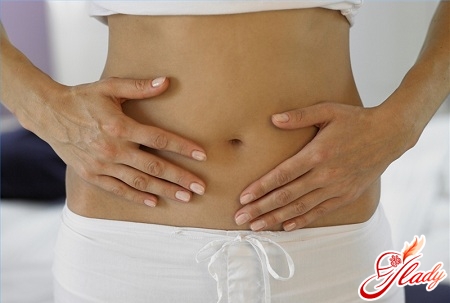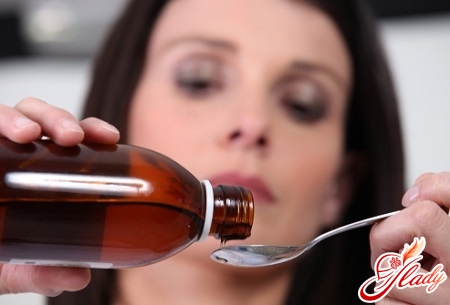 Chronic cystitis is quite commona common disease. By the way, women are more likely to get the disease. Doctors explain this fact by several factors. Firstly, the anatomical features of women - the urethra is much shorter and wider than the male one, and is located closer to the anus. This means that the risk of infection in the bladder is much higher. In addition, very often, for the sake of beauty, women neglect warm clothes - hip-hugging trousers, short skirts, thin tights on a frosty day have become commonplace. Moreover, cystitis mainly affects very young women. Again, unlike men, who, if they get cystitis, then, as a rule, in old age. Although, of course, there are exceptions to this rule - any person has a risk of getting cystitis.
Chronic cystitis is quite commona common disease. By the way, women are more likely to get the disease. Doctors explain this fact by several factors. Firstly, the anatomical features of women - the urethra is much shorter and wider than the male one, and is located closer to the anus. This means that the risk of infection in the bladder is much higher. In addition, very often, for the sake of beauty, women neglect warm clothes - hip-hugging trousers, short skirts, thin tights on a frosty day have become commonplace. Moreover, cystitis mainly affects very young women. Again, unlike men, who, if they get cystitis, then, as a rule, in old age. Although, of course, there are exceptions to this rule - any person has a risk of getting cystitis.
What is cystitis?
What is cystitis?The bladder cavity, like most other internal organs, is lined with a mucous membrane. And if, under the influence of some factor, inflammation of this mucous membrane occurs, doctors talk about cystitis. In the same case, if a person has two or three relapses of this disease during the year, chronic cystitis will most likely be diagnosed. The reasons that can cause the development of chronic cystitis are quite different:
- General hypothermia and hypothermia of the legs especially.
- Violation of the normal process of urination - most often in women.
- Violation of the normal functioning of the circulatory system.
- Various types of trauma to the bladder and urethra.
- Various kinds of infections and pathogenic microflora - viruses, bacteria and other.
- Dystrophy of the walls of the bladder, especially in the advanced stage.
In addition, very often the impetus for developmentChronic cystitis in women can be caused by an active sex life - especially after a long period of abstinence. Doctors note such cases quite often. Therefore, this risk factor should be taken very seriously. It is highly recommended not to radically change the usual course of sexual intercourse - either artificially prolonging it or interrupting it. Speaking about the causes of acute cystitis, one cannot help but mention another very delicate point. If you practice anal sex, you must be especially careful. With this type of sexual contact, the risk of infection of the bladder increases in both partners - both men and women. And this risk is higher for women. Therefore, be sure to use a condom and do not forget about the need to maintain personal hygiene. You should not give the disease the slightest chance. Remember also that almost all pathogens of sexually transmitted diseases can also provoke the development of cystitis - first acute, and then chronic. And again, the risk is higher for women. Therefore, pay close attention to your health - be careful, avoid casual sex, use personal protective equipment. At the first symptoms of the disease, be sure to seek medical help from a doctor. In addition, in women, a very powerful impetus for the development of chronic cystitis can be the suppression of the urge to urinate. This is explained very simply - if you regularly hold back the urge to urinate, various dysfunctions of the bladder will inevitably occur. The muscles of the bladder begin to work asynchronously, which has a very negative effect on the functioning of the entire urinary system, and in particular, provokes the development of chronic cystitis. And in some cases, chronic cystitis may develop without any apparent reason. Doctors find it difficult to answer why this happens, but the fact remains: no one is immune from the risk of getting cystitis. Therefore, information on how to deal with this disease is very relevant for everyone without exception. Another question that doctors are often asked is how does infection occur if cystitis is caused by an infection? There are several different ways in which the bladder can become infected:
- Ascending method of infection
This method of infection occurs most often -with it, the infection gets into the bladder from the urethra (urinary canal). Most often, this phenomenon occurs with various sexually transmitted infections - they get into the urethra in an ascending way. Moreover, if sexual intercourse does not bring the woman due satisfaction, the development of cystitis is possible even without any pathogenic microflora. The impetus for the disease is precisely congestion in the pelvic organs, especially in the bladder.
- Top-down method of infection
In this case, the infection descends into the urinary tract.bladder from the kidneys. This usually happens if a person is sick with pyelonephritis, especially its purulent form. Moreover, with this type of infection, cystitis is especially severe and pronounced, with a high temperature. In addition, infection of the bladder can occur from the lymphatic system. This happens if there are inflammatory processes in any organs of the small pelvis - for example, in the ovaries or prostate gland. More rarely, but still there are cases when the infection gets into the bladder through infected blood. This happens with diseases such as pneumonia, flu, and others.
Methods of diagnosing the disease
In order to successfully cope with suchsuch a misfortune as cystitis, it is necessary to promptly and correctly diagnose the disease, identify how severe the bladder dysfunction is, determine how severely the mucous membrane is affected. And, of course, it is very important to establish what exactly caused the development of chronic cystitis. As you might guess, it is simply impossible to do this on your own. Therefore, when the first symptoms of cystitis appear, you must seek help from a doctor as soon as possible. We will talk about the symptoms a little later. Modern medicine has a variety of ways to diagnose cystitis. However, the most effective were, are and will be ordinary laboratory tests of urine, including bacteriological ones, which allow you to find out the type of pathogen. In addition, urine analysis allows you to get an idea of the degree of damage to the bladder and the intensity of the inflammatory process. After this, to clarify the diagnosis, the doctor may prescribe such types of studies as cystography and cystoscopy. These studies allow you to clarify the type of disease, the degree of damage to the mucous membrane of the bladder. In addition, these studies can accurately determine whether there are tumors, stones, fistulas and ulcers, as well as other foreign bodies in the bladder. In addition, cystoscopy can reveal some concomitant diseases that often accompany chronic cystitis. In particularly severe cases, a biopsy of the bladder may be needed. Or rather, its mucous membrane. Such studies are most often prescribed to people suffering from a chronic form of cystitis. In addition, doctors can prescribe a biopsy to exclude more serious diseases - for example, bladder cancer, if the signs are vague.
Symptoms of cystitis
So how can one understand that a personfaced with cystitis? As a rule, it is not difficult to do this - the disease has very pronounced symptoms and causes a lot of unpleasant sensations to the sick person. The state of health deteriorates significantly. Therefore, it is simply impossible not to notice these symptoms:
- Obstructed urination
For a person with cystitis, the toiletturns into a real torture chamber. During urination, the sick person experiences pain, cutting and burning. Moreover, all these symptoms are characteristic of both acute and chronic forms of the disease. In women, they are very pronounced.
- Frequent urination
The number of sick women increases several timesurinations - their number can reach up to 40 - 45. Very often there are so-called false urges to urinate - they also greatly annoy the sick person.
- Change in color, odor and clarity of urine
In addition, one of the very first signsis a change in the color of urine - as a rule, it becomes darker, often cloudy, with various impurities. In most cases, urine with cystitis has a very specific smell, sometimes very unpleasant. Especially if cystitis has taken an advanced form.
- Blood in the urine
In the event that a person has been suffering from cystitis for a long timenot one year, even blood inclusions may appear in his blood. In this case, you cannot delay even a day longer - seek help from a doctor as soon as possible. In women, it is necessary to exclude menstrual flow.
- Painful sensations
Cystitis is nothing more than an inflammatorya process in which the urinary bladder is involved. Therefore, it is quite natural that a sick person may experience constant pain in the lower abdomen or in the lower back. During an exacerbation of cystitis, these pains become even more intense, completely depriving the sick person of rest.
- General malaise
In chronic cystitis, the sick personconstantly experiences a feeling of general malaise. Weakness, drowsiness, rapid fatigue, pain in the muscles and joints become constant companions for a person suffering from cystitis. These symptoms are very similar to the flu.
- Increased body temperature
In acute cystitis, there is a strong increase in body temperatureIt is almost impossible to avoid – it can reach up to 39 – 40 degrees. But even with a chronic course of the disease, there is often an increase in body temperature, although not so significant – up to 37.5 degrees. Such a body temperature, without appropriate treatment, can persist for many months.
Treatment of chronic cystitis
Of course, chronic cystitis is in no caseit is unacceptable to ignore it. It must be treated and treatment must be started as early as possible. If the treatment is selected correctly and started on time, the chances of a full recovery are very high. The infection will be destroyed by special drugs, the inflammatory process localized on the mucous membrane of the bladder will be stopped, the disease will completely recede. But once again we would like to draw your attention to the fact that a favorable outcome of the disease is possible only if the doctor has correctly diagnosed the disease and selected the treatment. After all, very often you can observe the opposite picture - incorrectly selected drugs simply eliminate the symptoms of the disease for some time, masking it. But there is absolutely no benefit from such treatment - one continuous harm. By the way - this is why you should never self-medicate. But let's look at this issue in order. By the way, the treatment of acute cystitis is carried out according to the same principle:
- Step One - Destruction of pathogenic microflora
Treatment of the inflammatory process does not havethere is no point if the pathogenic microflora that provoked the development of cystitis is not destroyed. Therefore, first of all, the patient is prescribed pharmacological drugs that normalize the microflora of the bladder. The doctor selects antibiotics strictly individually, taking into account the course of the disease and the individual characteristics of the body. Step two is the elimination of the inflammatory process. Unfortunately, it is impossible to get rid of cystitis by eliminating pathogenic microflora alone. It is necessary to eliminate the existing inflammatory process. For this, the doctor also selects the necessary anti-inflammatory drugs. Today, very effective and efficient uroseptics are appearing - drugs that not only destroy pathogenic microflora, but also eliminate the inflammatory process. As you can see, treating cystitis is not such a difficult task. But not only doctors will have to work hard, but also the sick person himself:
- Compliance with doctor's recommendations
First of all, it is necessary to strictly observe all the rulesexceptions to the recommendations of your attending physician. Take medications responsibly - missing just one injection or pill can cast doubt on the success of the entire treatment. If your doctor has prescribed physiotherapy, do not ignore it under any circumstances. Very often people mistakenly believe that they are absolutely useless. But this is not true at all - physiotherapy treatment can significantly speed up recovery.
- Compliance with the therapeutic diet
Pathogenic microflora feels most at easethemselves in an acidic environment - reproduction occurs very quickly. And human urine, which has increased acidity, is that very ideal environment. And the acidity of urine changes to a greater extent due to the diet. Sour, spicy and fatty foods can provoke such a change. During treatment, they must be completely excluded from the patient's menu. In addition, chocolate and baked goods are prohibited. If you show willpower and refuse the above products, the treatment will take much longer. In addition, such an imbalance can be caused by the most common vitamin deficiency. If the human body lacks certain vitamins and minerals, an imbalance in urine acidity develops very often. Therefore, be sure to ensure that the diet is balanced and complete. It is also recommended to additionally take vitamin E and a multivitamin complex during treatment. Your doctor will tell you which one.
- Drinking regime
Proper drinking regimen is probably no lessan important component, without which it is impossible to treat chronic cystitis. The patient should drink as much liquid as possible. You need to drink at least three to four liters of liquid per day. However, watch what the patient drinks. Very often, you can hear advice from “well-wishers” to drink beer - they say that it is an effective diuretic. However, this is not true at all - alcoholic beverages are strictly contraindicated for chronic cystitis, since ethyl alcohol significantly worsens the course of the disease. Treatment of chronic cystitis and drinking alcoholic beverages are incompatible. By the way, the same is true for coffee and other caffeinated beverages. You should also not drink too sweet juices, compotes, and especially carbonated drinks. Even carbonated mineral water is strictly prohibited. It is best to drink still table water, unsweetened fruit drinks or dried fruit compote. If you tolerate milk well - and women often have the opposite - you are very lucky - milk is very useful in this case.
Treatment of cystitis in folk ways
There are several very effective onestraditional medicine recipes, which are also very effective in combating chronic cystitis. However, remember that all these recipes can only serve as a supplement to the main treatment prescribed by the doctor. In no case should it be replaced by traditional medicine alone. Otherwise, the consequences of such treatment will not be the most favorable. In addition, be sure to consult with your doctor before using any recipe. And you can start treatment only after his approval and permission. So, let's get acquainted with these remedies:
- Decoction of chamomile
Chamomile is an irreplaceable assistanta person in the treatment of a huge number of diseases. Including, as you may have guessed, chronic cystitis. For treatment, you will need a chamomile decoction, but not quite the usual one. Prepare five tablespoons of aloe juice and three tablespoons of dried chamomile flowers. Place the chamomile in an enamel pan, pour in 0.5 liters of water and bring to a boil. After that, reduce the heat and cook the chamomile for ten minutes. Turn off the heat, cover the pan with a lid and wrap it in a terry towel. At this time, squeeze out the juice. After about 15 minutes, strain the decoction using gauze and mix with aloe juice. The sick person should drink this solution during the day, in small sips. The treatment should last at least a month, even if the symptoms of the disease disappear much earlier. In the event that you have acute cystitis, this recipe will also be very relevant.
- Marigold Infusion
Calendula infusion is no less effective.Calendula has not only aseptic, but also anti-inflammatory action. To prepare the infusion, place three tablespoons of the decoction in a thermos and pour one glass of boiling water. Infuse for 24 hours. Then strain the infusion using gauze. The sick person should drink this decoction every morning, on an empty stomach, half a glass. The duration of such a course of treatment is 14 days. Please note one important point: during the treatment, you must stop drinking black tea, even in small quantities. As a rule, a feeling of relief occurs on the third or fourth day of treatment.
Prevention of chronic cystitis
Well, is the principle of treating cystitis more or lessclear? Great! But don't forget that it is much wiser to prevent the development of the disease than to treat it later. And it doesn't matter at all whether you are a professor of urology or have nothing to do with medicine - prevention of cystitis is very important.
- Compliance with personal hygiene
One of the main reasons for the development of cystitis isviolation of personal hygiene rules. Remember that keeping your genitals clean is an excellent preventative measure not only for cystitis, but also for many other diseases. Also, keep your underwear clean.
- Proper nutrition
It was already mentioned above that during treatmentchronic cystitis, you need to review your diet. Of course, it is extremely difficult to live in such a strict restriction all the time. However, you should still review your menu - talk to your doctor about it. He will help you decide on prohibited foods. This will greatly increase the likelihood that you will never again encounter an exacerbation of chronic cystitis. No one is immune from acute cystitis. An attack of the disease can happen at any time. But in order for acute cystitis not to take a chronic form, it must be treated immediately. Otherwise, the consequences in the form of many months of discomfort and painful long-term treatment are guaranteed. And may your story of fighting cystitis end with your victory and complete defeat of the disease! Be always healthy! We advise you to read:









